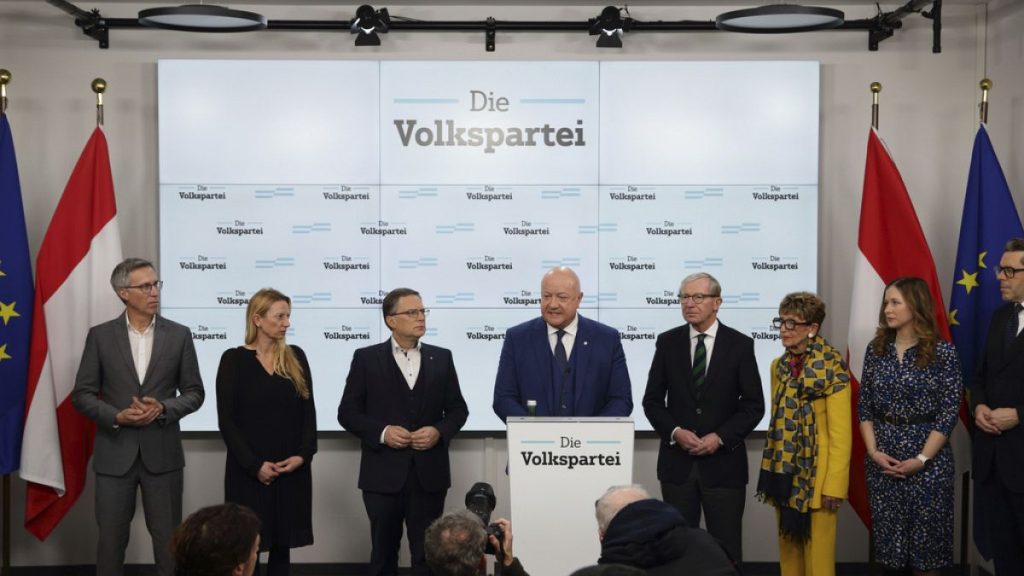The political landscape in Austria remains dynamic, hosting a series of political developments that call attention to the complex instability and pivotal decisions shaping the country’s future. The article meticulously traces the historical context, detailing the transformative nature of these efforts to form a coalition government, which could promise political stability and macroeconomic的局面. However, the process is marked by significant challenges and misunderstandings, as evidenced by the attempts and setbacks described.
Austria’s political situation is nonetheless unconventional, marked by the slow formation of the government. The past of this country has been largely stable, with a stable executive ()”> government), but the present government’s formation continues to face pressure from various잘ce forces and separatists, as evidenced by the leadership challenges undergone since 1993. The evolution of the political landscape is marked by a complex interplay of anti-immigration, pro-EU, and counter-immigration forces seeking to redefine the country’s political identity.
Among the most significant developments in the political arena are the decisions of Far-Right leader Herbert Kickl versus the conservative Competitor parties. Despite the convoluted history of coalition efforts, most attempts to form a coalition for a new government have ultimately failed, leading to ongoing gridlock. kickl’s FPO party has struggled to find common ground with the center-left Social Democrats (SPD) or the Freedom Party (FPÖ), as they rely on mutual exclusivity to secure a parliamentary majority, which is unlikely to be achieved in a racial divide.
The formation of a coalition government would have significant implications for Austria’s stability. If consolidation occurs with the three dominant parties, it could lead to a more effective government with a mandate that includes a balanced budget, governance reforms, and gender equality. This vision aligns with the article’s premise of reshaping the country’s political future, despite its challenges.
The article acknowledges the persistent economic, social, and security challenges faced by Austria, despite its former stability. This instability is further exacerbated by rising unemployment and a declining economy, as presented in the opinion piece. In ten years, the author discusses the delusion of grand stability, arguing that Austria is better off assuming any level of political transformation rather than simmering down into worse terms.
Austria faces a deeply challenging political environment, but the emergence of alliances such as the Free Political Alliance ( רשימת Partied) hints at a broader shift towards more moderate and inclusive governance. The article concludes by envisioning a political world primarily governed by gender equality rather than蛋糕 eating, a vision that could provide a more inclusive and equitable future for the country. As such a narrative, it offers hope for a different chapter in Austria’s political history.

